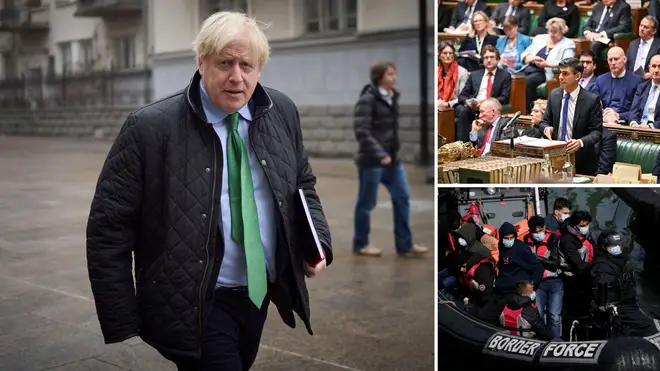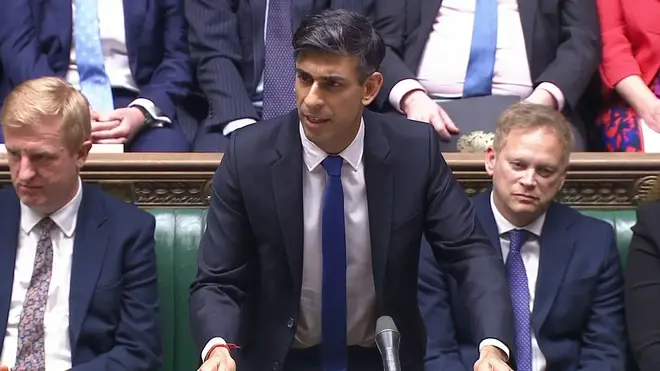
Tom Swarbrick 4pm - 7pm
16 January 2024, 12:02

Boris Johnson has joined the Tory right-wingers uprising against Rishi Sunak ahead of a high-stakes Commons showdown over the Government’s flagship Rwanda Bill.
The former Prime Minister called for the government to back amendments proposed by the right wing of the party, which have so far been supported by more than 60 MPs including Tory party deputy chairmen Lee Anderson and Brendan Clarke-Smith.
Just 29 Tory MPs voting against the bill on Wednesday could derail the legislation.
Governments around the world are now trying to imitate the UK Rwanda policy for tackling illegal people trafficking. This bill must be as legally robust as possible - and the right course is to adopt the amendments. https://t.co/lOpdbpzWl5
— Boris Johnson (@BorisJohnson) January 16, 2024
Writing on X this morning, Mr Johnson said: "Governments around the world are now trying to imitate the UK Rwanda policy for tackling illegal people trafficking."This bill must be as legally robust as possible - and the right course is to adopt the amendments."
The amendments want to see an immediate block to any Rule 39 injunctions of the flights by European judges.
Today Work and Pensions Secretary Mel Stride tried to play down the division, telling Nick Ferrari at Breakfast Tory Party members have "strong views on this matter" but there was "unity" in the party with members "all trying to achieve the same thing."
Sunak is expected to defy threats from Tory rebels to vote down the Safety of Rwanda (Asylum and Immigration) Bill by refusing to accept any concessions. He is said to be determined to pass the bill unamended because any changes would delay the emergency legislation by at least a week.

Mr Sunak is expected to defy threats from Tory rebels to vote down the Safety of Rwanda (Asylum and Immigration) Bill by refusing to accept any concessions.
He is said to be determined to pass the bill unamended because any changes would delay the emergency legislation by at least a week.
In a bid to assuage concerns, ministers are preparing to announce plans to move 150 judges from the first-tier tribunal to the upper tribunal, the body that will hear appeals under the new legislation.
The judges are being given additional training and would be paid more to sit on evenings and weekends. The government has also brought in 100 extra officials to process claims and will create additional hearing rooms.
It is designed to fast-track the process of considering individual legal appeals lodged by migrants. The Home Office believes 99.5 per cent of individual legal challenges would fail but there is still a risk that large numbers lodging appeals would clog up the system sufficiently to delay and frustrate their removal.
A government source said the extra manpower would ensure that in the “very unlikely scenario a claim proceeds, it will be dealt with swiftly and not clog up the system”.
Ahead of the debate at committee stage of the bill, the UN’s refugee agency said the Government’s Rwanda plan was still in breach of international law.
The United Nations High Commissioner for Refugees said the plan, which includes the Rwanda Bill and a recently signed treaty with Kigali, was “not compatible” with international refugee law.
Former Tory Solicitor General Lord Garnier has branded the legislation as “rather like a bill that has decided that all dogs are cats”.
The Supreme Court judgment last year highlighted several serious concerns about Rwanda plan that would need addressing before the policy could be considered lawful.